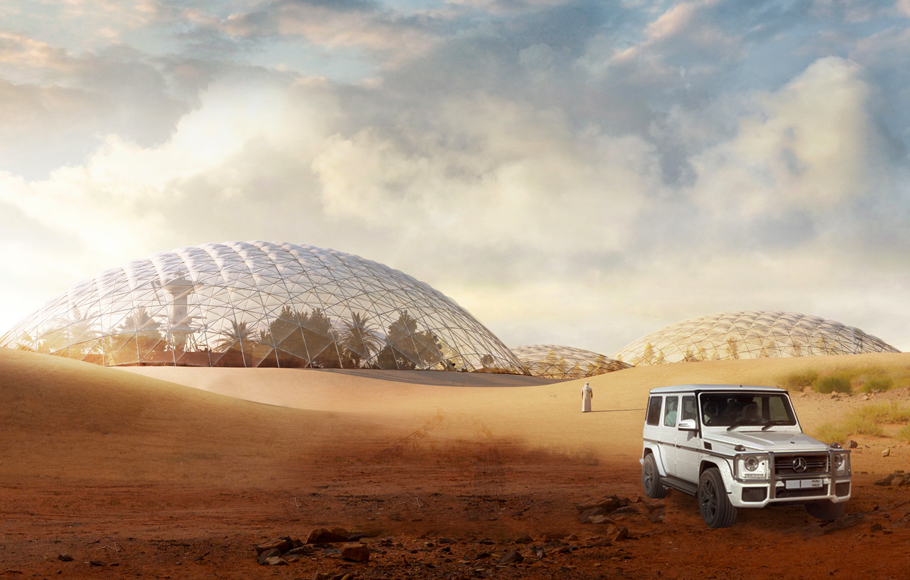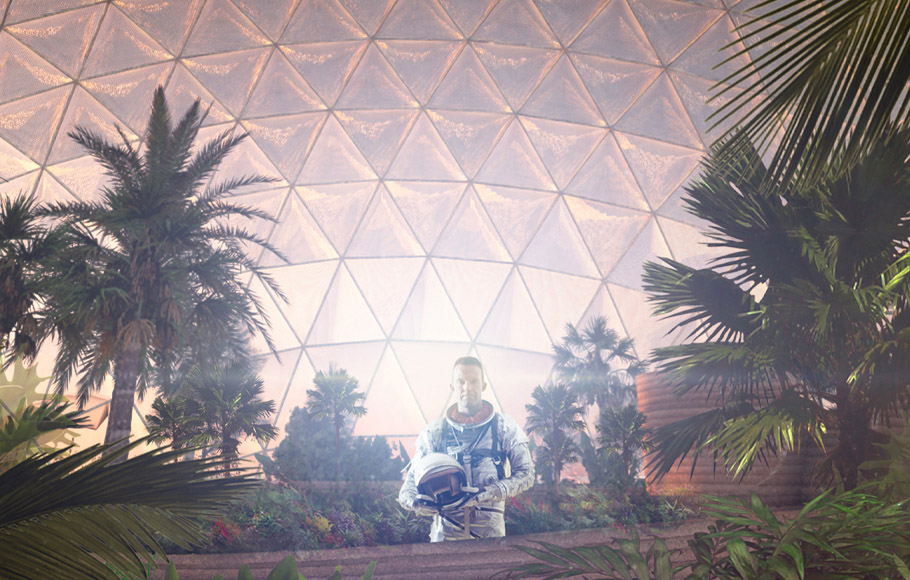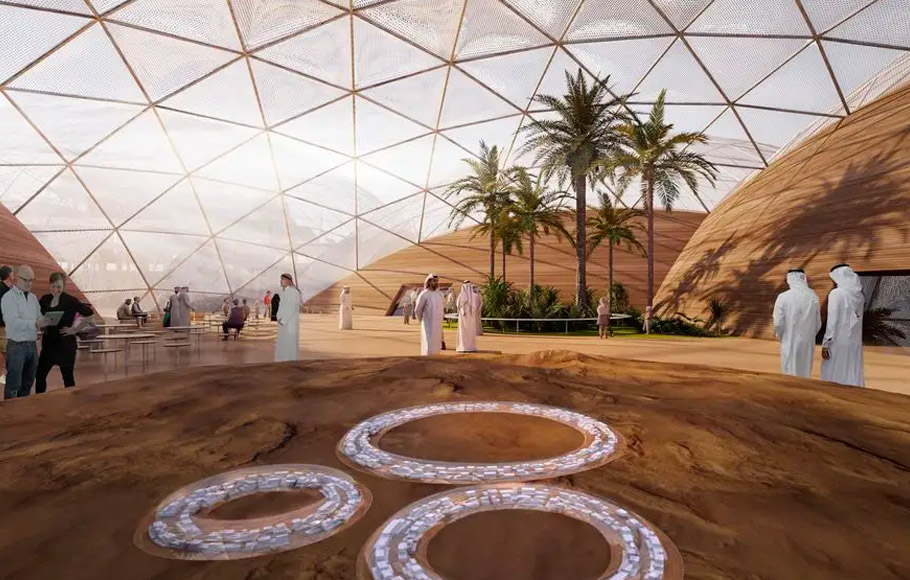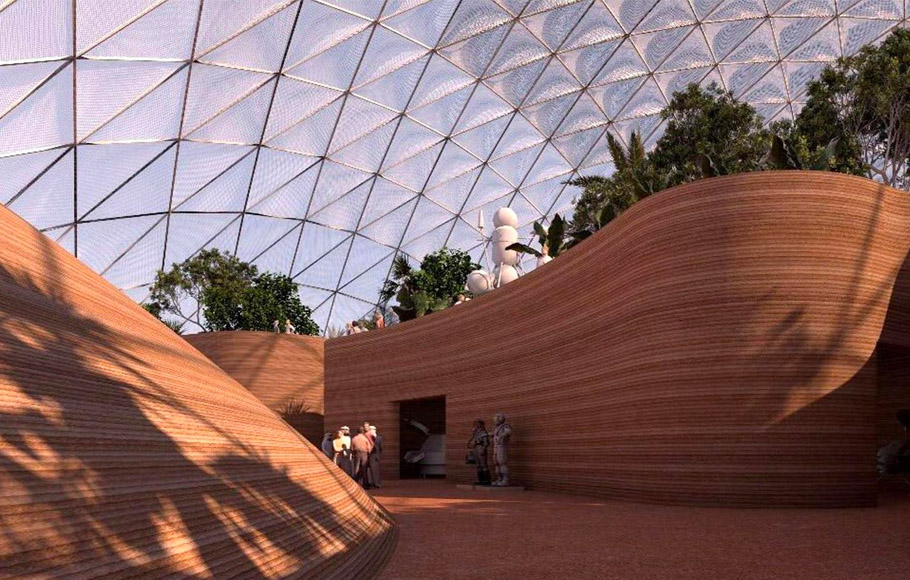
- Home
- News
- Analysis
- States
- Perspective
- Videos
- Education
- Entertainment
- Elections
- World Cup 2023
- Features
- Health
- Business
- Series
- Economy Series
- Earth Day
- Kashmir’s Frozen Turbulence
- India@75
- The legend of Ramjanmabhoomi
- Liberalisation@30
- How to tame a dragon
- Celebrating biodiversity
- Farm Matters
- 50 days of solitude
- Bringing Migrants Home
- Budget 2020
- Jharkhand Votes
- The Federal Investigates
- The Federal Impact
- Vanishing Sand
- Gandhi @ 150
- Andhra Today
- Field report
- Operation Gulmarg
- Pandemic @1 Mn in India
- The Federal Year-End
- The Zero Year
- Premium
- Science
- Brand studio
- Home
- NewsNews
- Analysis
- StatesStates
- PerspectivePerspective
- VideosVideos
- Entertainment
- ElectionsElections
- Sports
- Loading...
Sports - Features
- BusinessBusiness
- Premium
- Loading...
Premium

Burj is not the limit as UAE aims for Mars

All eyes are on Mars this decade, as space giants ramp up explorations to the red planet, with an intent to explore technologies that will benefit human habitats in future. A new entrant to this elite club is the United Arab Emirates (UAE), which is fast emerging as a strong contender for interplanetary space missions. The UAE space agency, the Mohammed Bin Rashid Space Centre (MBRSC),...
All eyes are on Mars this decade, as space giants ramp up explorations to the red planet, with an intent to explore technologies that will benefit human habitats in future. A new entrant to this elite club is the United Arab Emirates (UAE), which is fast emerging as a strong contender for interplanetary space missions.
The UAE space agency, the Mohammed Bin Rashid Space Centre (MBRSC), is aggressively pursuing space projects, with its eyes set on colonising Mars in the next century.
As a step toward this goal, the Emirati space agency launched an orbiter called Hope to Mars in July 2020. Hope will be reaching our planetary neighbour on February 9 and will collect comprehensive atmospheric data. Hope’s weather maps will serve as a ready-reckoner for upcoming missions as well as future Martian habitats.
However, gathering weather data alone will not suffice. There are a number of issues that need to be addressed. How will humans live and survive on the inhospitable planet? How will they generate life-sustaining resources like oxygen and water? Can they grow their food and thrive? Besides, how will their habitats protect from harsh space radiations?
To address these issues, space agencies have been performing rigorous experiments on the International Space Station. On earth, places like the Mojave Desert in the USA, the Atacama Desert in Chile, the Arctic and Antarctic regions, which have Mars-like harsh climate conditions, have been supplementing as testing grounds for space experiments.
However, the Emirati space agency is going a step further—building an entire prototype of a future Mars habitat in the Dubai desert. It will be a training bed in many ways for their future astronauts. The MBRSC is roping in global expertise to build this futuristic city.
UAE’s analogue
In true Emirati style, the Martian replica will not be just a facility, but an entire city spread around two million square feet of desert land. The grand facility called the Mars Science City is expected to cost about 140 million dollars.
The project named ‘Mars 2117’ is touted to be a prestigious national project. It was announced by UAE Prime Minister Sheikh Mohammed bin Rashid in 2017.

The Mars 2117 project’s objective will be to enable the UAE’s role in developing life-supporting systems to make it possible to live on other planets. The mission is a scientific boost and an impetus to instil a culture of discovery and exploration in their youngsters who will travel to Mars in the future.
The Mars analogue will have domed structures to mimic a futuristic Martian habitat. The city will facilitate and envision the vagaries of Martian life—on earth.
How will a Mars habitat look like
Mars has a hostile climate, rife with massive dust storms, extreme temperatures and penetrating radiation. Besides, Mars has a very low gravity (about one-third of the earth) and a thin atmosphere (100 times lighter than earth’s). The low air pressure is an unfriendly factor for life, for, at low pressures, body fluids like blood begin to boil in no time even in freezing temperatures.
Scientists visualise that people will live underground on Mars to circumvent the inhospitable conditions. Inflatable, transparent pressurised domes will be erected on Mars. While the transparent domes project out to provide necessary sunlight and visibility to the outside world, the habitats will tunnel 20 feet below.
In the underground layers, people will not only live and work but also grow plants for food. The enclosed space will filter the harsh radiation creating a biosphere for humans to survive.

Oxygen will be produced by electrolysing the ground water-ice. Unique underground agricultural farms will generate food and preserve the bio-dome.
Regolith or the dry surface soil will be the construction material and 3D-printed into the structures.
Several such bio-domes will be interconnected to form villages and cities for communities.
The sprawling quarters
Mars Science City designers are keeping all these points in mind to build the prototype. They have envisioned transparent bio-domes projecting out from the sands. Layers of clear polyethene will cover the domes, and the habitats will be built under these domes.
Desert sand will replace Martian soil, and the walls and structures will be 3-D printed with it.
There will be an element of novelty: a skylight with an aquarium. A layer of water sandwiched between two transparent sheets of skylight will house the aquarium. This skylight will provide sunlight and aesthetics while the water layer will help regulate the internal temperature.
The Mars Science City will have office spaces, laboratories, museums, educational and learning centres, and an amphitheatre. The domes will be interconnected to form a community space.

The Science City will be open to Emirati and global researchers who will have access to advanced laboratory facilities and cutting-edge technologies. They will conduct various space experiments related to life on Mars.
Some proposed experiments will be in areas like heat conduction, radiation effects and agricultural methods. The MBRSC will be training their astronauts to live on the premises for up to one year, to strategize living conditions, experiment and train for life on Mars.
Fret not; this architectural marvel will be open to visitors as well! Visitors will get an out-of-the-world experience touring through a part of the habitat, educational and learning pods, museums depicting historic space events and the amphitheatre.
The architecture
Engineers and scientists from MBRSC will work closely with noted architect Bjarke Ingles from Denmark to bring the project to reality in this decade. Currently, the design finalisations are underway.
“Architecture is the fiction of the real world,” says Ingles in a YouTube video.
The physics of load-bearing structures transform under low gravity and low-pressure conditions such as on Mars.
“There is an explosion of possibilities while building structures on other planets, some aspects that cannot be realised on earth are possibilities on other planets,” he says.

